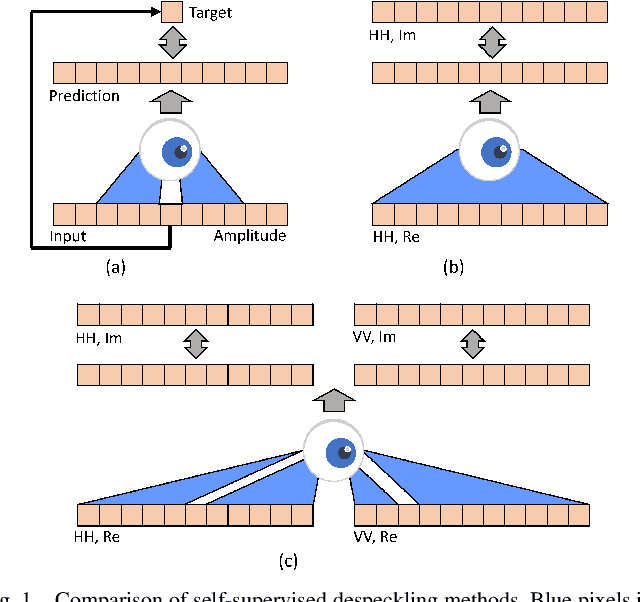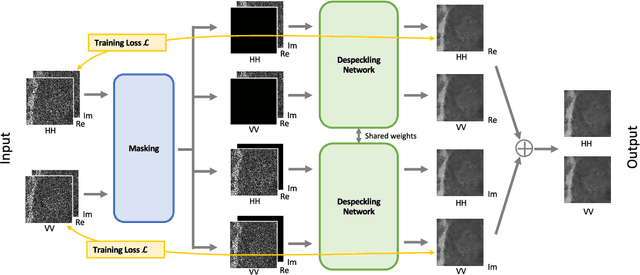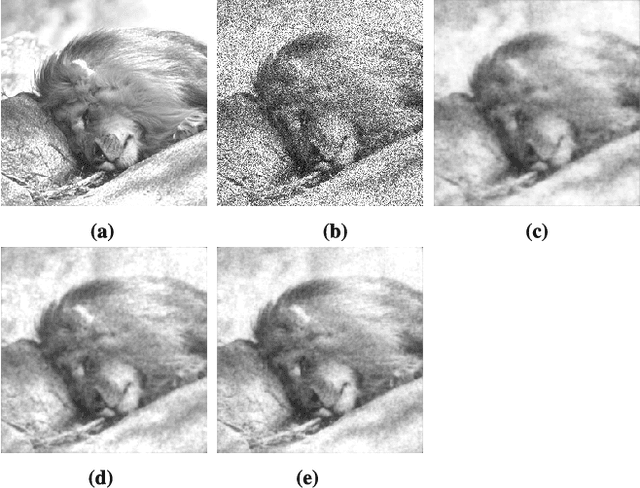PolMERLIN: Self-Supervised Polarimetric Complex SAR Image Despeckling with Masked Networks
Paper and Code
Jan 15, 2024



Despeckling is a crucial noise reduction task in improving the quality of synthetic aperture radar (SAR) images. Directly obtaining noise-free SAR images is a challenging task that has hindered the development of accurate despeckling algorithms. The advent of deep learning has facilitated the study of denoising models that learn from only noisy SAR images. However, existing methods deal solely with single-polarization images and cannot handle the multi-polarization images captured by modern satellites. In this work, we present an extension of the existing model for generating single-polarization SAR images to handle multi-polarization SAR images. Specifically, we propose a novel self-supervised despeckling approach called channel masking, which exploits the relationship between polarizations. Additionally, we utilize a spatial masking method that addresses pixel-to-pixel correlations to further enhance the performance of our approach. By effectively incorporating multiple polarization information, our method surpasses current state-of-the-art methods in quantitative evaluation in both synthetic and real-world scenarios.
 Add to Chrome
Add to Chrome Add to Firefox
Add to Firefox Add to Edge
Add to Edge